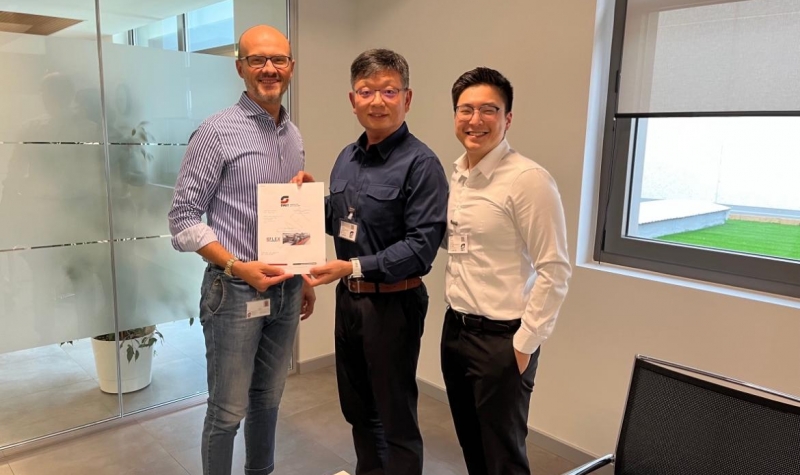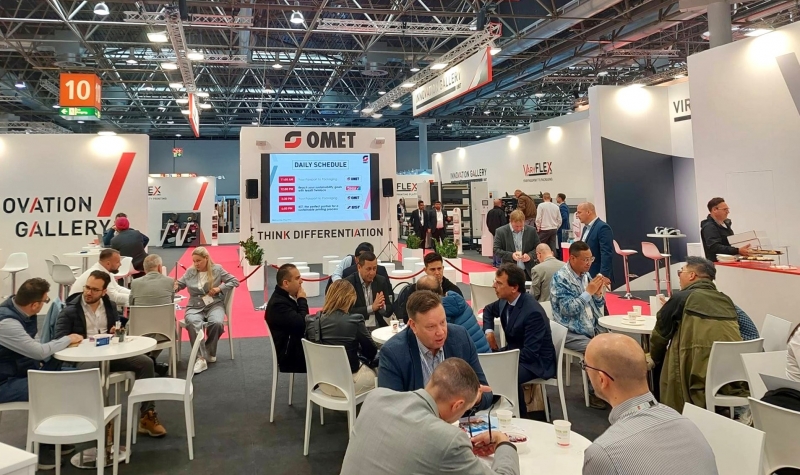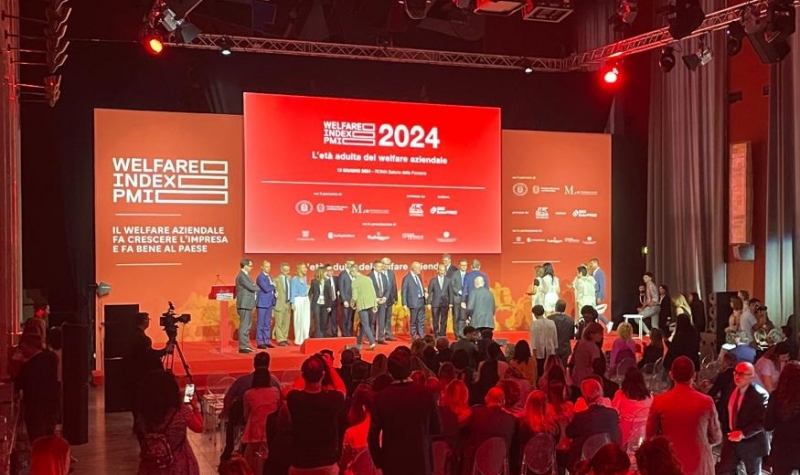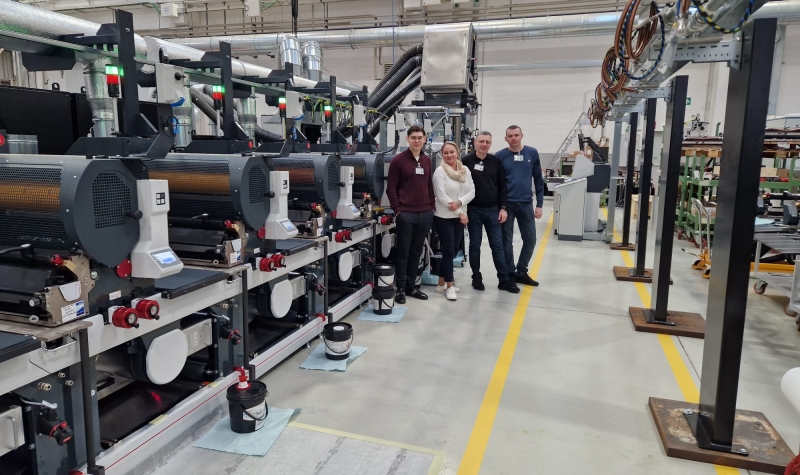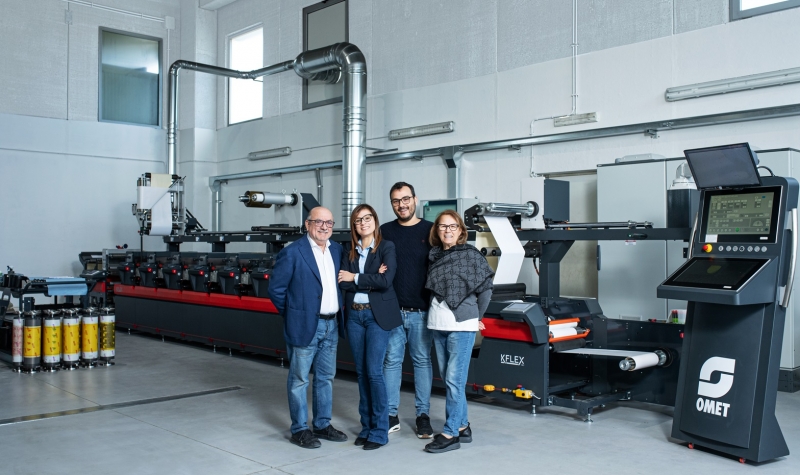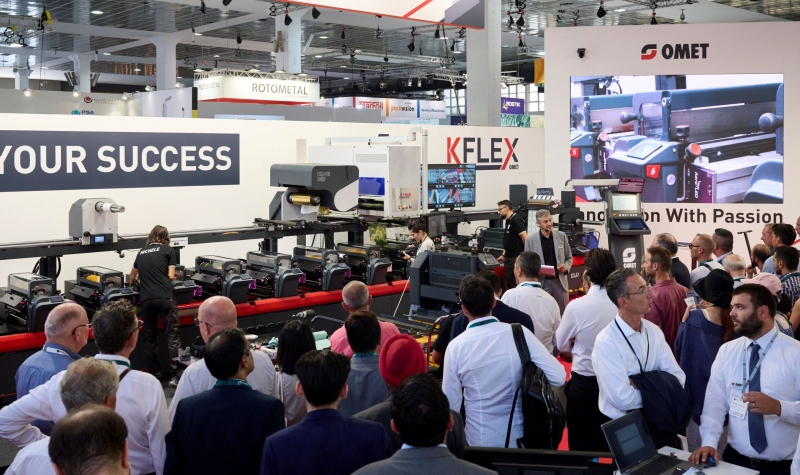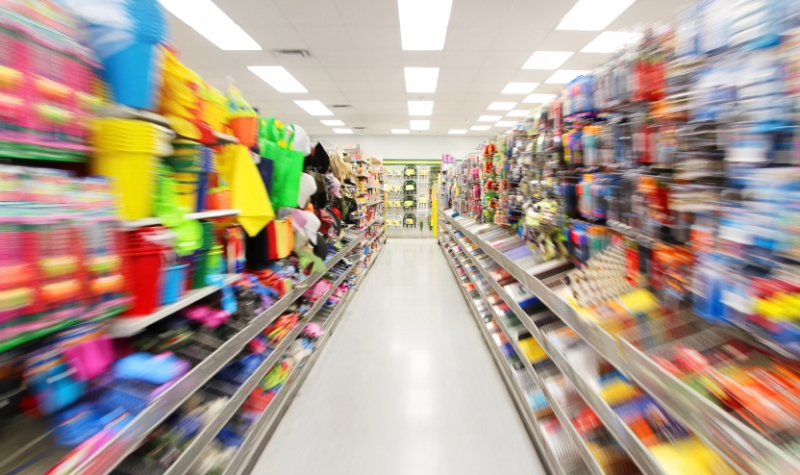
Labels and packaging in Italy: despite everything, we grow.
The economic crisis following the Covid-19 pandemic and the restrictive measures adopted by several countries seems to have lightly touched the label and packaging sector. Although suffering an inevitable slowdown, the sector is driven by the growing demand for packaged products boosted by the lockdown, for the longer time spent at home. This suggests even a growth in the future. The positive, although cautious, forecast is shared by all market players: manufacturers such as OMET, printing and converting companies, suppliers of equipment and materials, industry experts. But there is still great uncertainty about the future. In this survey, we collected the opinions of some market players, who agree on a picture of the sector fortunately far from the current worrying situation of the Italian economy.
General market situation
Journalists and industry experts provide a broader and super partes view about the Italian market trend. “Despite the consumption slowdown, the forced stay at home has generated a greater need for primary goods (food, medicines, hygiene products, etc.), often with home service and increasing single-dose packs – explains Emilio Gerboni, journalist and consultant with decades of experience in the graphic arts and converting sector -. This means more work for packaging and labels producers, provided that the production is able to satisfy the demand with flexibility and promptness”.
“The greatest current difficulties in Italy are due to the lack of liquidity for companies unable to finance themselves because of a reduced turnover – continues Gerboni -. To overcome this situation, a consistent commitment by the Government and the regional authorities is required. The banking system should help companies without aiming at an immediate profit, but looking for a long-term economic and productive restart”.
Marco Picasso, editor and director of MetaPrintArt, confirms this opinion but also shows a precise direction for the recovery. “Even during the lockdown, the label and packaging sector never stopped to work, despite some difficulties in supplying and presence of the workforce on the machines – says Picasso -. Sales forces, despite having suffered from the lack of personal contact, kept the sector alive. However, there was a decline in orders, especially from abroad. The data showed by Assografici association show that there was a decrease in production up to 37% for the graphics sector and only of 13% in converting. “A growth is certainly expected, driven by the increase in demand for packaged products. But the consumer pays more and more attention to sustainable products. As recently shown by the Packaging Awards, the industry – including brands, packaging and large retailers – is working successfully in this direction. Even the ennobling is more and more appreciated. Those who print packaging and labels will have to take this into account. The Italian market is suffering from the indecisions of the Government, who seems not to be able to give drastic solutions, having to (or wanting) to please everyone. Given the increasing sustainability trend, innovation in packaging raw materials could be a way forward. Italian industry and research are at the forefront of this issue and should receive more support to overcome foreign markets. To overcome the difficulties, planning remains fundamental”.
Elena Piccinelli, Editor-in-Chief of Converting review, highlights the flexibility of Italian companies and their ability to react to difficulties and market changes with creativity and promptness. “After the first and more confusing months of this 2020 year, the sector, on the one hand, found business continuity or even opportunities for growth – in food & beverage and pharma, for well-known reasons explains Piccinelli -. On the other hand, it quickly sought new solutions for the emerging needs created by the health emergency, often activating networks of local relationships and creating “short supply chains”. I think about many converters and printers who have quickly started production of protective aids, hospital clothing, indoor signage, etc., first for the local community and then for the entire market. Some other found new development opportunities such as proximity suppliers of companies stumped by the peak of market demand. Other companies have upgraded their equipment to better serve the packaging demand boosted by the online sales, investing in digital or hybrid printing technologies to better manage small orders and customizations. Finally, there were companies which have developed new lines of labels and packaging with sanitizing and antibacterial coatings, or which have invested in quality and ecological certifications, or which have emerged for the care for safety and well-being of their employees … There are many interesting cases and many others we will see. Change is fast. In line with the trend, I agree with the positive forecast for the sector, but with the limits of the purchasing power of the population and, upstream, the effectiveness of the various national welfare systems. And above all with the problems that new lockdowns could create for supply chains, both nationally and internationally. The uncertainty complicates any possibility of planning, and the difficulties of the Government in supporting economic activities are the main problem for all market players. It is necessary to strengthen existing networks and to design new tools and collective strategies, in order to create a working system both at the level of this sector and of the country. And it’s fundamental to knowing how to use information and communication tools, channels and opportunities with much greater awareness than in the past, to overcome isolation and impasse”.
“Packaging and label sectors were less penalized than others – confirms Chiara Bezzi, Editor in Chief of Innovative Press -. In particular, companies that target the food & beverage and above all the pharmaceutical sectors have seen their turnover grow, unlike those who target luxury packaging or high-end wines, or industrial packaging. Consumers have realized, during the pandemic, how packaging actually guarantees protection and safety beyond an aesthetic role. Plastic is no longer “the evil of the world”, and perhaps today people are more aware that sustainability comes from a correct behavior after use, by managing packaging waste and recycling. The biggest difficulties concern exporting companies, Italy must return to show its strength as a country producing high quality goods and capital goods. To overcome this moment it is necessary to bring consumption back to post-pandemic levels and inject confidence in companies and consumers. Surely the Italian government will have a fundamental role in this sense and will have to respond concretely to the needs of companies and individuals”.
Investments in new machinery
On the side of the machinery producers of labels and packaging printing and converting, the OMET sales force engaged on the Italian market collects consistent feedbacks from its customers, who speak of a definitive and not temporary change in market conditions and of a revolution in customer relations. This change can be positive under many point of views.
“In recent months, strong changes have affected the market and the businesses – comments Marco Calcagni, OMET Sales Director -. The way of working, the needs of customers, the approach to suppliers have changed. People travel less, and meetings are often virtual: at first, everything seemed difficult, but the result was greater efficiency and greater speed in communicating and solving problems. Packaging, in general, has not undergone any downturns: it has remained stable with increases in particular in the food sector. Going to restaurants or on a cruise was forbidden, but people have not stopped eating, so they turned to large retailers, increasing the demand for packaging. This trend has not immediately reflected in an increase in the investment market, where OMET operates, but it has balanced the fear of the future which represets its main brake. Right now, the key is a vision that goes beyond the contingent emergency situation: many forward-looking entrepreneurs continue to invest, and governments encourage the restart of economies”.
“We are all overwhelmed by a global change – adds Roberto Speri, OMET Sales Manager – we have to adapt in a very short time to an emergency that involves new ways of action, new points of view, strong change of mentality and new commercial and technical strategies. There will be no more fairs or important events to meet, to avoid gatherings, but above all, we understand that this situation is marking our path indelibly. However, I see it as a new interpretation and an occasion to optimize and develop new channels and opportunities. Some customers have ridden the wave of the pandemic, dramatically increasing their turnover and having the possibility of further investing in new equipment and machines; some others have found themselves unprepared and met serious difficulties. Basically, the healthy and forward-looking companies have get through the moment and have equipped themselves to continue working. Who knows how long this moment will last”.
“Almost all of my Italian clients agree that the change will not be temporary but will forever affect the current way of working – confirms Andrea Campani, OMET Sales Manager -. There is a growing demand for printing technology, increasingly connected with service providers and with customers themselves, online 24 hours a day. The current pandemic made us make a technological leap of at least 10 years, immediately taking us to levels unthinkable for our country until a year ago. I don’t know many label converter that have closed or gone bankrupt due to Covid 19. I see difficulties only for who works in a single sector or simply aims at lower prices without any diversification. Companies that have always been attentive to technological innovation and quality will come out stronger than before”.
“Basically I can confirm the above – says Gilberto Vercellotti, also of the OMET sales force – The world of Graphic Arts in general comes from a period of downsizing of orders, the difficult lockdown has been a watershed between the commercial printers and publishing, very slowed down, and labels/packaging converters which not only maintained the volumes of previous years, but in some cases even exceeded them. From the investments point of view, caution remains, and attention is paid to the type of product and the quality and reliability of the supplier. Several entrepreneurs are moving to define their projects by the beginning of 2021 in order to take advantage of state subsidies, by presenting the budgets of previous years not yet reduced by the 2020 crisis”.
Printing and converting companies
“To date, national statistics show that packaging has grown by +5% while publishing, sector that includes the paper converting sector, has fallen by -30/40%.” says Bruno Martino, owner of the Novarex company located in Veneto, one of the regions most affected by the pandemic last spring. “The packaging sector reflects a slight increase in consumption, but above all a shift towards a different type of packaging. This trend was present already before the pandemic: today people are mostly oriented to discounts for price reasons, and they buy smaller pieces (once the Grana cheese was sold in pieces of 500 g, today it is sold in 100 g pieces), this change is related to an evolution of the families (elderly, separated, single). The pandemic produced an increase in consumption in February, March, April: we even had problems in storing products and finding raw materials. Today this trend has stabilized, but there is absolutely no crisis”. “The future? – continues Martino – I don’t have the crystal ball but as President of the graphic paper converters of Confindustria Venezia Rovigo, I can say that the losses and difficulties of the sectors we work with are very serious, for example fashion, travel, catering. The general crisis is very strong and generates permanent closures of many activities. Italy is suffering, perhaps the whole world, and everything is connected. We should be able to live with this virus: if we continue to block, it will still be a problem for every single sector”. “I believe that in the future we will see new slowdowns in the already poor national industrial growth trends. But we must absolutely have faith in the restart and create new market models – says Massimiliano Bacchieri, second generation at the helm of Idea Srl / Rolmarkem -. If we analyze the data carefully, the decline in the catering sector has actually generated an increase in the production of the food sector, for which we have always worked. Also the sectors of hygiene and cleaning, beauty care, chemical have definitely held the market to the detriment of others that are probably considered less important. However, we want to be absolutely optimistic about a general restart of the country”.
A look to the future
The spread of the Covid-19 pandemic – concludes Massimo Bellingardi, OMET marketing coordinator – was rapid and unexpected in the first months of the year, and none of the companies in the sector could be prepared for such a situation.
All strategic plans, investments and prospects have had to be revised but above all the way of working, planning and approaching the market has changed. The sector reacted quickly and decisively, with the firm intention not to bend, to adapt and return to investing. So did OMET too, with humility and dedication we cleared our certainties and rebuilt our way of working, always trying to stay close to the customer, his doubts and his needs even if only virtually. With the contribution of the new NOVA app (New Omet Virtual Access), developed with foresight in the months preceding the pandemic, we were able to technically intervene at our customers without the physical presence of our technicians, also managing to install numerous machines in all continents, remotely guiding customer technicians step by step. This second wave has brought further uncertainty to the market, but we are not unprepared and cautiously move forward, with the knowledge that things will improve.
 is the web magazine with all news about OMET Group
is the web magazine with all news about OMET Group 